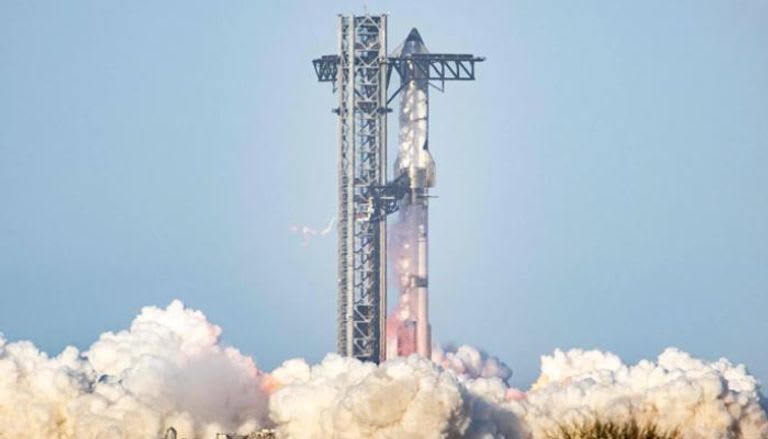"SpaceX" loses the spacecraft "Starship" in its ninth test flight.

Spacecraft "Starship," belonging to "SpaceX," took off from Texas on the evening of Tuesday, May 27, on its ninth unmanned experimental journey, following two previous failed attempts. However, the trip ended with the spacecraft being lost during its return to the Earth's atmosphere.
"Dan Hout," an official at "SpaceX," confirmed during the live broadcast of the journey: "We have officially lost contact with Starship a few minutes ago. This marks the end of the ninth experimental journey," indicating an "uncontrolled return" of the spacecraft that was supposed to land in the Indian Ocean.
The giant rocket, consisting of two stages and equipped with the "Super Heavy" booster, launched at 23:30 GMT from the "Starbase" launch pad in the Gulf of Texas. The live broadcast showed the rocket soaring amidst a ball of flames and thick smoke, while the "Raptor" engines roared loudly.
"SpaceX" had obtained the necessary launch license just four days prior, concluding a two-month investigation due to a previous incident.
The two previous attempts in January and March witnessed the spacecraft exploding moments after launch, leading to debris scattering and disrupting air traffic in the Caribbean region.
"Starship" is a key part of "Elon Musk's" plan, the American billionaire and founder of "SpaceX," to build a multi-purpose spacecraft capable of transporting humans and cargo to the Moon and Mars.
Musk expressed eagerness for the experiment's success, especially after recently announcing a refocus on his commercial projects, including "SpaceX."
It is expected that Musk will present timelines and new plans in the near future to achieve his goal of sending missions to Mars, despite the technical and logistical challenges facing the project.
Musk had earlier announced the postponement of a planned speech about Mars missions, writing on "X platform": "Postponed until after the launch of Starship 9 tonight," without providing further details.